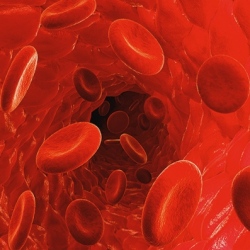
Scientists report that they have targeted telomeres with a small molecule called 6-thiodG that takes advantage of the cell’s biological clock to kill cancer cells and shrink tumor growth. 6-thio-2-deoxyguanosine could stop the growth of cancer cells in culture and decrease the growth of tumors in mice.
Drs. Shay and Wright are co-senior authors of the study “Induction of Telomere Dysfunction Mediated by the Telomerase Substrate Precursor 6-Thio-2′-Deoxyguanosine” appearing in Cancer Discovery. “Treatment with 6-thio-dG resulted in rapid cell death for the vast majority of the cancer cell lines tested, whereas normal human fibroblasts and human colonic epithelial cells were largely unaffected,” wrote the investigators.
“In A549 lung cancer cell–based mouse xenograft studies, 6-thio-dG caused a decrease in the tumor growth rate superior to that observed with 6-thioguanine treatment. In addition, 6-thio-dG increased telomere dysfunction in tumor cells in vivo. These results indicate that 6-thio-dG may provide a new telomere-addressed telomerase-dependent anticancer approach.
"We observed broad efficacy against a range of cancer cell lines with very low concentrations of 6-thiodG, as well as tumor burden shrinkage in mice," noted Dr. Shay, who is also associate director of the Harold C. Simmons Comprehensive Cancer Center. Cancer cells are protected from apoptosis by telomerase, which ensures that telomeres do not shorten with every division. Telomerase has therefore been the subject of intense research as a target for cancer therapy.
Drugs that successfully block its action have been developed, but these drugs have to be administered for long periods of time to successfully trigger cell death and shrink tumors, leading to considerable toxicities. This outcome is partially because cells in any one tumor have chromosomes with different telomere lengths and any one cell’s telomeres must be critically shortened to induce death.
